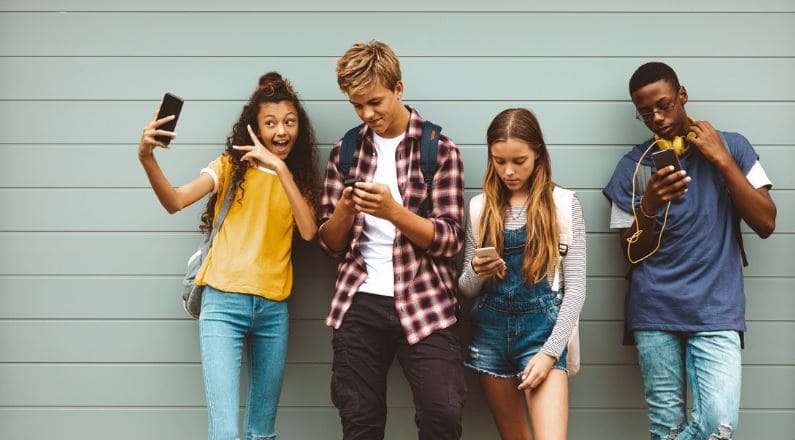Introduction
Social media has become an integral part of teenagers’ lives in the 21st century, dominated by digital transformation. Despite the perceived benefits of social media platforms, they can cause significant challenges to teenagers’ mental health. The challenges include different mental health disorders that negatively impact adolescent well-being. Exploring effects, including depression, low self-esteem, anxiety, sleep disruption, and eating disorders caused by cyberbullying, unrealistic body image, and the addictive nature of social media, will help understand social media’s influence on teens’ mental health.
Cyberbullying Impact
Cyberbullying is a concerning cause of social media’s negative impact on teenagers’ mental health and is on a rapid rise. For example, a study with 355 participants, with 20% spending more than 12 hours on the internet, showed that the prevalence of cyberbullying was approximately 42.8 % in the cohort, with its occurrence among females slightly lower compared to males.1 This suggests that it can lead to an increase in teenagers experiencing mental health issues, such as depression, loneliness, and anxiety, due to constant exposure to threats and negative comments. Thus, social media can negatively influence teenagers’ mental health due to its facilitation of cyberbullying.
1. Gassem Gohal, “Prevalence and Related Risks of Cyberbullying and Its Effects on Adolescent,” BMC Psychiatry 23, no. 1 (January 14, 2023): 4, https://doi.org/10.1186/s12888-023-04542-0.

Unrealistic Body Images Cultivation
Furthermore, social media promotes unrealistic body image, depicting impractical beauty standards, especially among young women, which impacts their self-esteem. For example, teenagers’ exposure to images on Instagram portraying thin and attractive peers and celebrities correlates to high body dissatisfaction, resulting from social comparison.2 The pressure among teenagers to attain beauty levels depicted on social media leads to mental health issues, including eating disorders, since they engage in extreme dieting and unhealthy exercise routines. Therefore, social media facilitates possible mental health challenges by impacting teens’ everyday lives relating to eating habits and body image as they try to fit society’s standards.
2. Federica Pedalino and Anne-Linda Camerini, “Instagram Use and Body Dissatisfaction: The Mediating Role of Upward Social Comparison With Peers and Influencers Among Young Females,” International Journal of Environmental Research and Public Health 19, no. 3 (January 29, 2022): 3, https://doi.org/10.3390/ijerph19031543.
Social Media Addiction
Additionally, social media is addictive, which contributes to teens’ mental health deterioration. For example, research has shown a significant positive correlation between excessive social media usage and daily dysfunction, depression, and sleep disorder.3 This aspect can further lead to decreased face-to-face interactions since social media employs an engaging algorithm that hooks users through likes and comments. As such, the constant need for validation creates dependency and anxiety among teenagers, ultimately impacting their well-being.
3. Azar Pirdehghan, Edris Khezmeh, and Soheila Panahi, “Social Media Use and Sleep Disturbance Among Adolescents: A Cross-Sectional Study,” Iranian Journal of Psychiatry 16, no. 2 (March 17, 2021): 143, https://doi.org/10.18502/ijps.v16i2.5814.
Conclusion
Social media has a profound impact on adolescents’ health. Its unrealistic portrayal of body image leads to teenagers’ dissatisfaction with their appearance, while cyberbullying and its addictive nature collectively contribute to depression and anxiety among teens. Other effects of social media include eating disorders and disruption of sleep patterns, negatively impacting teenagers’ mental health. In turn, social media can harm teenager’ mental health, leading to a downtrend in their well-being.
Bibliography
Gohal, Gassem. “Prevalence and Related Risks of Cyberbullying and Its Effects on Adolescent.” BMC Psychiatry 23, no. 1 (January 14, 2023): 1–10. https://doi.org/10.1186/s12888-023-04542-0.
Pedalino, Federica, and Anne-Linda Camerini. “Instagram Use and Body Dissatisfaction: The Mediating Role of Upward Social Comparison With Peers and Influencers Among Young Females.” International Journal of Environmental Research and Public Health 19, no. 3 (January 29, 2022): 1-12. https://doi.org/10.3390/ijerph19031543.
Pirdehghan, Azar, Edris Khezmeh, and Soheila Panahi. “Social Media Use and Sleep Disturbance Among Adolescents: A Cross-Sectional Study.” Iranian Journal of Psychiatry 16, no. 2 (March 17, 2021): 137-145. https://doi.org/10.18502/ijps.v16i2.5814.


